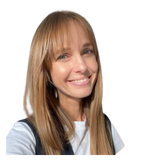World-class startups choose us

What is Build in Public?
Building in public is the future of marketing and brand building. In simple terms, it is an intentional practice of creating content and sharing your company's story as it unfolds — with transparency, openness and vulnerability.
This refreshingly gutsy and novel approach allows you to stand apart from the noise in the marketplace and organically attracts other like-minded people people to your channels on the Internet.
Many of these people eventually become your customers, co-founders, investors, employees or supporters of your mission.
You can choose to build in public on any social platform (like Twitter, LinkedIn, TikTok) or on online communities such as Indie Hackers or Reddit.
Platforms We Work On
Platforms we have worked on and succeeded on and
the achievements we have won
10M+
Total Views Generated
On Twitter
100K+
Total Leads Generated
Since our establishment
in
September 2020 we
have managed
LET'S
LAUNCH
YOUR
STARTUP
Strengthen your brand's impact in the digital world with a professional team and original content. Join us for customized solutions.
Let's Talk


Anna Buldakova
CEO of Meander
"We picked KP as our hunter because he knew all the ins and outs of Product Hunt and also showed genuine interest in our product (and it's important to have a true ambassador on your side!). Thanks to him, we got to the top shortly after the launch, and that allowed us to have a strong position throughout the day. During the entire journey, KP was extremely supportive and gave us some killer recommendations to make our launch shine. Even after the launch, he stuck around, giving us more guidance when we got nominated for product of the week. Working with KP was an absolute blast!"